Behavioral economics of climate action
by Till Requate, Gernot Wagner, and Israel Waichman

Nature and Springer Nature journals, including e.g. Nature, Nature Climate Change, Nature Energy, Nature Sustainability, Scientific Reports, and njp Climate Action.
by Till Requate, Gernot Wagner, and Israel Waichman

by Miranda Hack, V. Faye McNeill, Dan Steingart, and Gernot Wagner


by Matthew G. Burgess, Leaf Van Boven, Gernot Wagner, Gabrielle Wong-Parodi et al
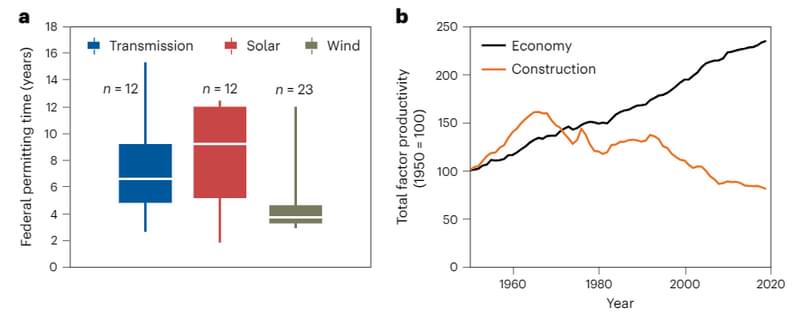
Global-warming projections that rely on bioenergy strategies to offset carbon dioxide emissions could be unduly optimistic, according to a study that accounts for how climate change affects crop yields.

by David R. Kanter et al.
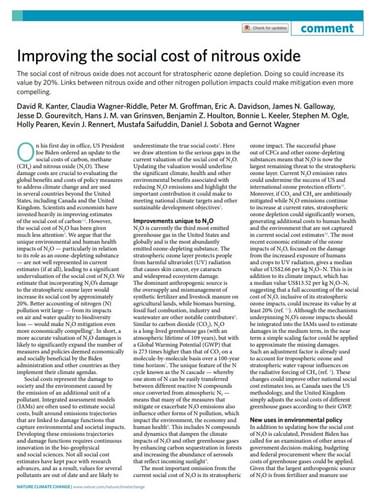
By Anna Nowogrodzki

The science is ripe to update estimates of CO2 emissions costs. Calls to scrap the calculation are misguided.
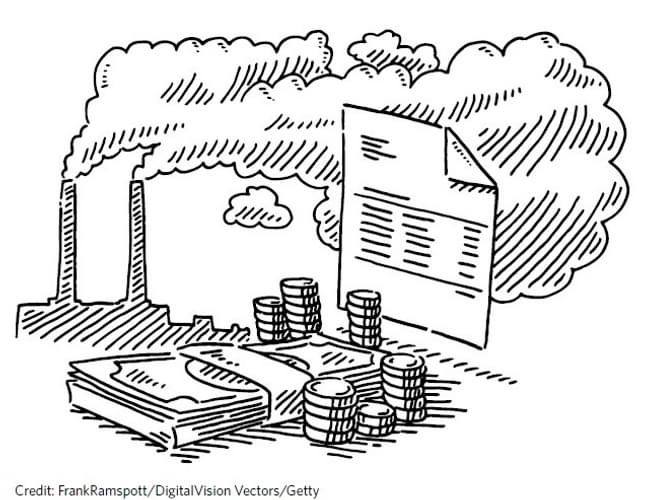
by Gernot Wagner, David Anthoff, Maureen Cropper, Simon Dietz, Kenneth T. Gillingham, Ben Groom, J. Paul Kelleher, Frances C. Moore, and James H. Stock
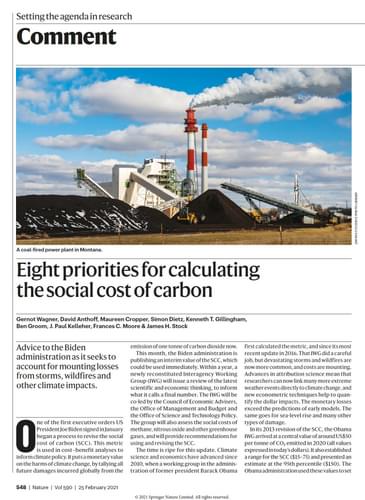
by Adrien Fabre and Gernot Wagner
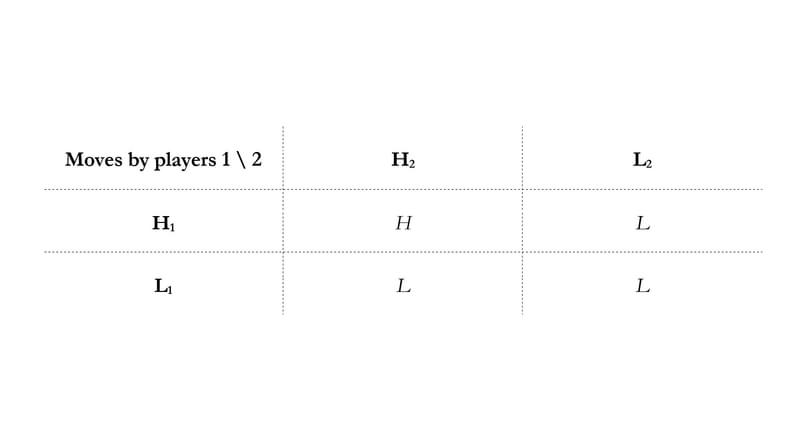
by Thomas Sterner et al
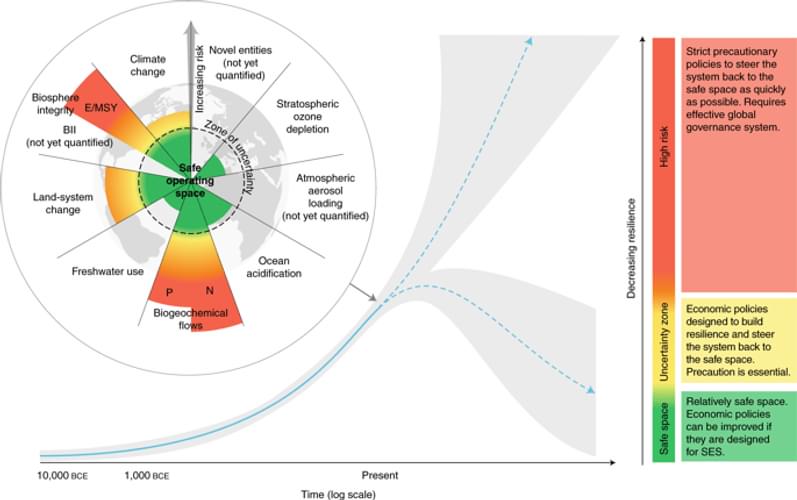
by Jonas Meckling, Thomas Sterner & Gernot Wagner
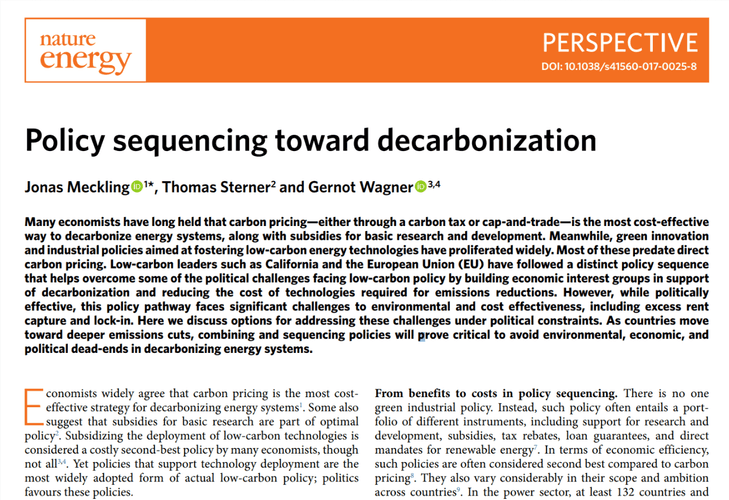
by David W. Keith, Gernot Wagner and Claire L. Zabel
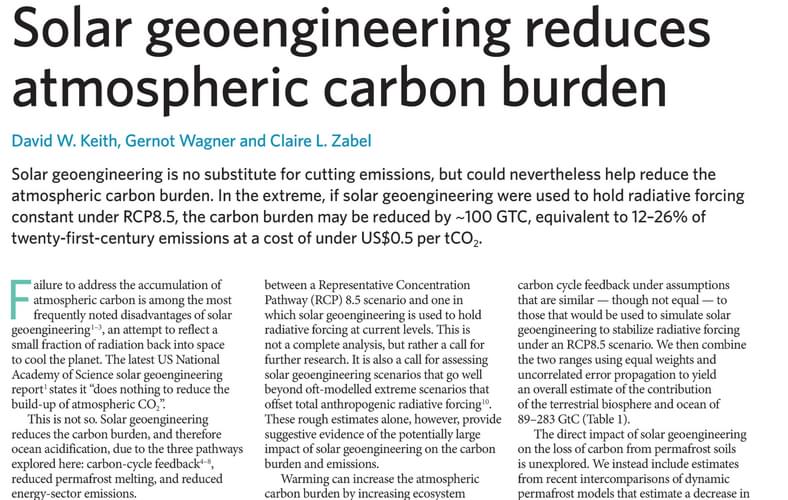
by Gernot Wagner, Tomas Kåberger, Susanna Olai, Michael Oppenheimer, Katherine Rittenhouse, and Thomas Sterner

by Jessica F. Green, Thomas Sterner and Gernot Wagner
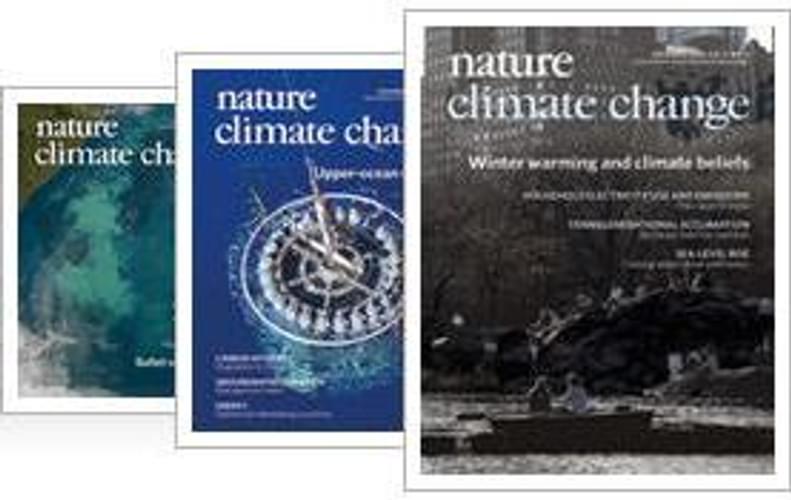
by Kenneth Gillingham, Matthew J. Kotchen, David S. Rapson, and Gernot Wagner
